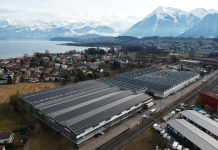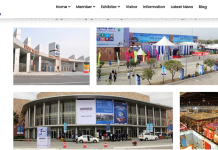Metal Container Manufacturers’ Association has welcomed the recent announcement by the Hon’ble Finance Minister for reduction of 5% custom duty for all iron and steel items, including tinplate/ tin-free steel, which is major raw material for the metal packaging industry. The announcement has come very timely, keeping in mind the exorbitant increase by the domestic producers for these products. The local prices have increased up to 20% recently.
The association represents the interest of a large number of MSMEs engaged in the manufacture of tin containers and closures. Sadly this reduction in the import duty may not help the metal packaging industry as the exporters of tinplate/ tin-free steel are not accepting the orders for supplying these materials to India in the wake of applicability of steel and steel products quality control order dated 17 July 2020 which is effective from 17 April 2021.

The association affirms that more measures and support is needed that would help revive the metal packaging industry. The policy makers are silent on the major issue that is going to hit the industry seriously that is mandatory imposition of BIS standard on tinplate/tin-free steel and tinplate products like easy open end, peel off ends as per QCO dated 17 July 2020.
The impact is serious as there is a demand-supply gap of 2,50,000 tonnes per annum and the metal packaging industry has to fill that gap from imports.
As regards steel products like easy open ends, peel off ends, and domes and cones, the industry is primarily dependent on import of such components as the demand in India does not justify huge capital investment for manufacture of these ends. Metal Container Manufacturers Association has requested the Government to set up a development fund in the shape of a soft loan that can be repaid in 10 years or more at a minimal rate of interest. This would also help the industry to move towards “atmnirbhar Bharat,” that is indigenizing components manufacturing both for domestic market as well as exports.
The industry today is already suffering due to shortage of tinplate/tin-free steel, steel products (like easy open ends), and exorbitant increase in their prices. The tin cans are used for packing essential products like processed food, edible oil, dairy, and various other perishable food products, therefore, the non-availability of can post 17 April 2021 will severely affect the processed food industry and also the export of canned food products from India.
Similar kind of quality control orders had also been issued earlier in the year 2008, 2015, and 2017 but keeping in mind the demand-supply gap, practical difficulties in implementation, and adverse impact and requirement of the MSME sector, particularly in the metal packaging, the Government withdrew the draft QCO on tinplate / tin-free steel. The situation has not changed since then as there is a demand-supply gap of 2,50,000 tonnes per annum.
Finally, if the Government does not look into the issue on priority, it is apprehended that its implementation will seriously affect the trade and industry engaged in the metal packaging sector and will result into loss of employment and non-availability of metal packaging to essential sectors like food and pharma.











